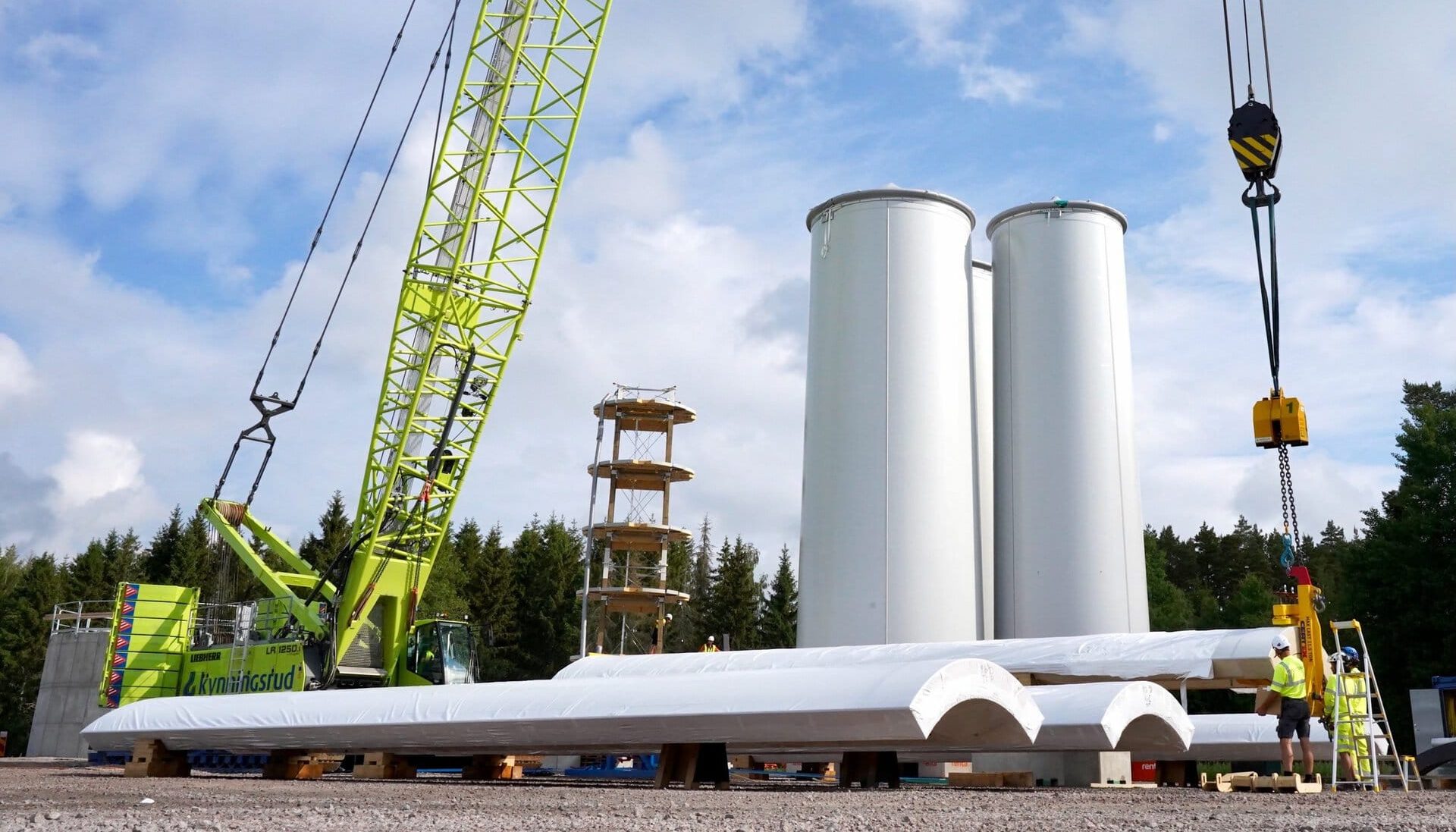A 105-meter wind turbine tower made of wood, the tallest of its kind, is being built in Sweden by the wood technology company Modvion. The tower will be the company’s first commercial installation and is being built for the energy company Varberg Energi, in the municipality of Skara in Sweden.
“This is the start of a new green industry. By using Nordic raw materials and Swedish technology, we can enable climate-neutral wind power for a growing global market,” said Otto Lundman, CEO of Modvion.
A 2-megawatt turbine will be mounted on the tower, produced by the leading Danish wind turbine manufacturer, Vestas, also a shareholder in Modvion since 2021. Including the blades, the total height of the wind turbine will be 150 meters. This is the first time that Modvion’s tower technology will be paired with a turbine from Vestas. The wind turbine tower is planned to be in operation before the end of the year.
The last wooden modules – made from laminated veneer lumber (LVL) – are currently being manufactured in Modvion’s factory in Gothenburg, which was inaugurated last year. The modules are assembled four by four at the construction site into seven sections that will make up the finished tower. Work on site began earlier this year with the laying of the foundation and now modules are transported to site where section assembly has begun.
“We’re excited to see this project become a reality. We will support Modvion’s strategy to scale up and work with them to deliver wooden towers as an offering to the growing wind turbine market,” said Todd O’Neill, CEO at Vestas Ventures.
The tower is the component that usually emits the most carbon. By switching to a wooden tower, carbon emissions are reduced dramatically during manufacturing while the material itself stores carbon. The result is a carbon negative component, storing more CO2 than is emitted during production.
The laminated wood that the modules are made from has a better strength-to-weight ratio than the types of steel used for wind turbine towers, enabling lighter towers. The patented modular design allows for simple transportation on standard roads, without the need for lengthy permit procedures. The technology enables cost-effective and tall towers compared to traditional steel towers.
“Wood enables building higher towers at a lower cost, which makes wind power more efficient since winds are stronger and more stable higher up. That gives you more electricity from each permit to build wind turbines,” said Otto Lundman.



























